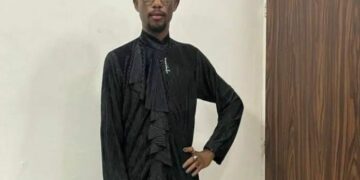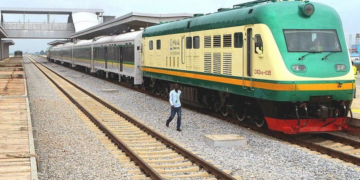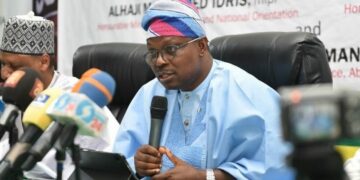Vice President Yemi Osinbajo has called for a Nigeria freed of its past, current challenges and able to engage the future with the best possible tools in human and material capital is within reach.
Osinbajo said this could be achieved through a strong collaboration between young Nigerians, private and public sector stakeholders.
He made the call on Wednesday at the global virtual launch of ‘Imagine Nigeria’, a federal government initiative implemented in collaboration with the United Nations Development Programme (UNDP) aimed at answering the question, “What it would take to transform Nigeria?” and detailing the thoughts in a report.
The vice president who represented President Muhammadu Buhari at the event said in a statement by his media aide, Laolu Akande that “it is a process of reflection and discussion by all Nigerians, especially young Nigerians on what the future of our country should look like. Imagine Nigeria hopes to stimulate interest and attention around issues of innovation, green economy, trust, leadership and framing a more positive national narrative.”
The initiative is “a bold, unblinkered, exploration of the great possibilities of our nation,” he observed.
Osinbajo added that “perhaps one of the silver linings in the dark clouds of COVID-19 was the opportunity it gave us to reflect on a future for our nation and world, seeing how massive public health and economic challenges could so easily upend global dynamics. For Nigeria, the context is even more nuanced.
“There is the imminence of a zero-oil scenario, a large youth population in search of opportunities, the urgent imperatives of climate change, threats to the peace, stability and unity of the country.
But on the other end of the scale are the evident opportunities. The possibilities of a demographic dividend, being the largest economy in Africa, having perhaps the fastest growing economies in entertainment and technology in Africa; and the list goes on.”
The Vice President then spoke on the content of the work done by the Imagine Nigeria project team, noting that “the report itself identifies five pillars as the basis for building forward and transformation. These are ambitiously described as the five pillars of change: Build a Culture of Innovation; Catalyze a Green Economy; Build trust; Facilitate a National Narrative; and Lead Africa.”
“The pillars of change and the entire report are only the beginning of the imagining process. The pillars provide some of the big ideas around which we hope the dialogues and conversations will develop. From here on it will now be up to us all – civil society groups, public and private sector think-tanks, professional and vocational associations, socio-cultural and political groups, to open up dialogues and conversations,” Prof. Osinbajo stated.
Earlier, Minister of Finance, Budget and National Planning Hajiya Zainab Ahmed said the launch of the project was timely as the task of transforming Nigeria for the future was no longer a prerogative of government or “a select few”, noting that the entirety of the society must join in planning for the future and finding ways to address contemporary challenges.
While urging Nigerians to key into the project, the Minister said “the launch of the project as a collective reflection is an excellent opportunity for Nigerians to come together to define the national agenda.”
On his part, the Minister of State for Budget and National Planning, Prince Clem Agba, said the Buhari administration was working hard to entrench a culture of innovation, highlighted the ongoing broadband expansion using data to provide social safety nets and the development of a $500 million innovation fund under the Digital and Creative Enterprise programme.
Also speaking at the event, the former Minister of Budget and National Planning, Senator Udoma Udo Udoma, a member of the Imagine Nigeria High Level Panel, said “given where the world was at the height of the COVID-19 lockdown, and the many challenges the nation is facing today, the importance of getting all Nigerians to think constructively about Nigeria, and to explore what the future holds for us, cannot be over-emphasised.”
He noted that “we must have a serious conversation as to what sort of Nigeria we want. And that conversation must involve all Nigerians, particularly the youth, who are easily the most dynamic and innovative demography in any nation.”





